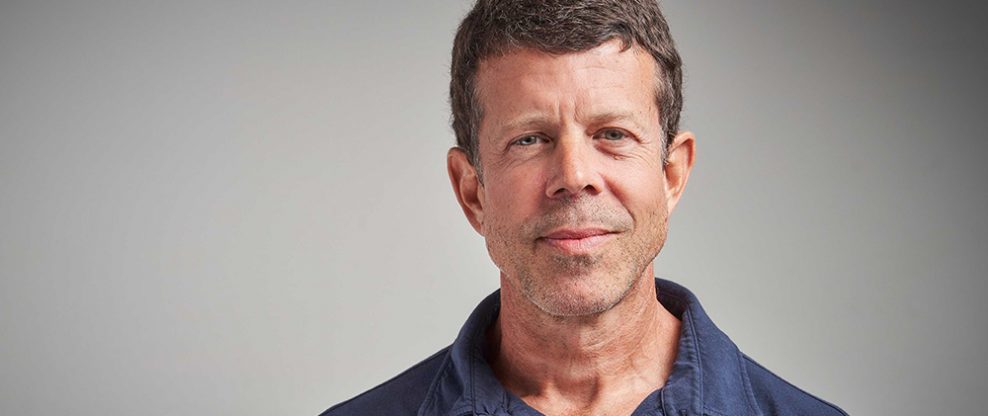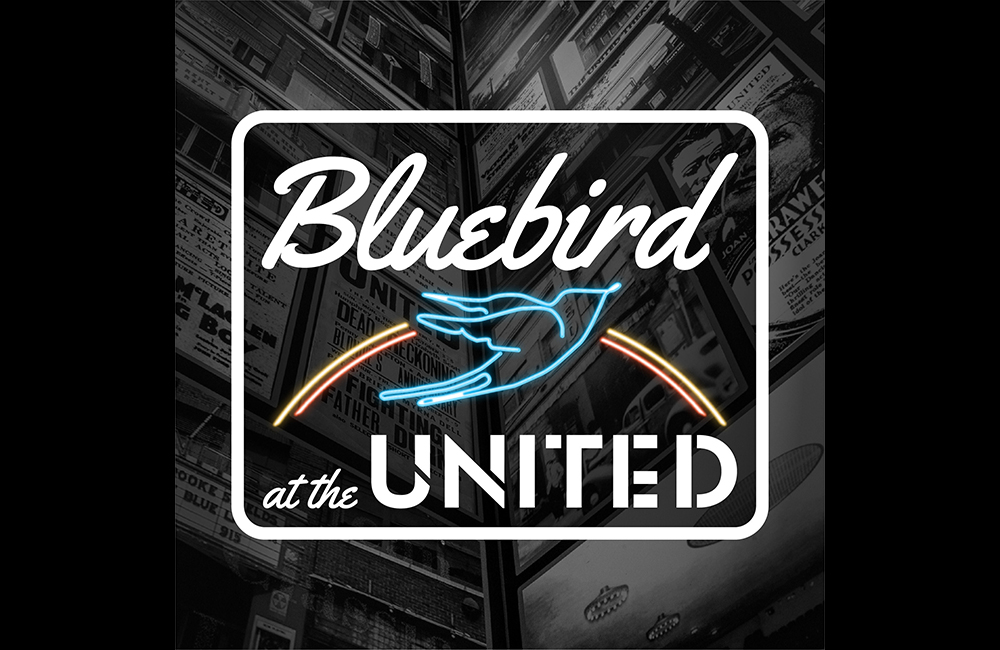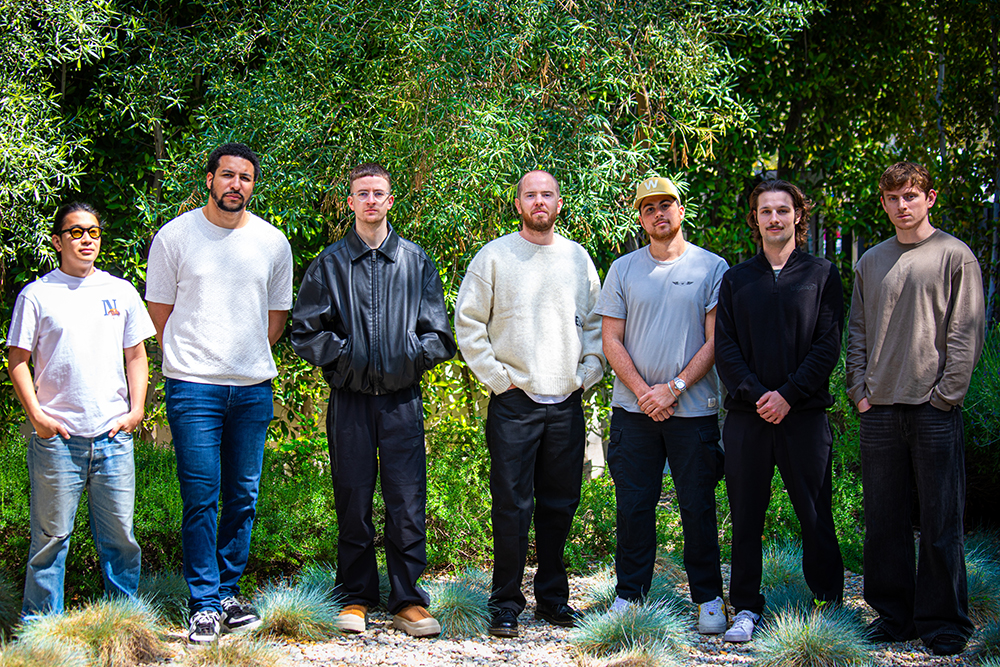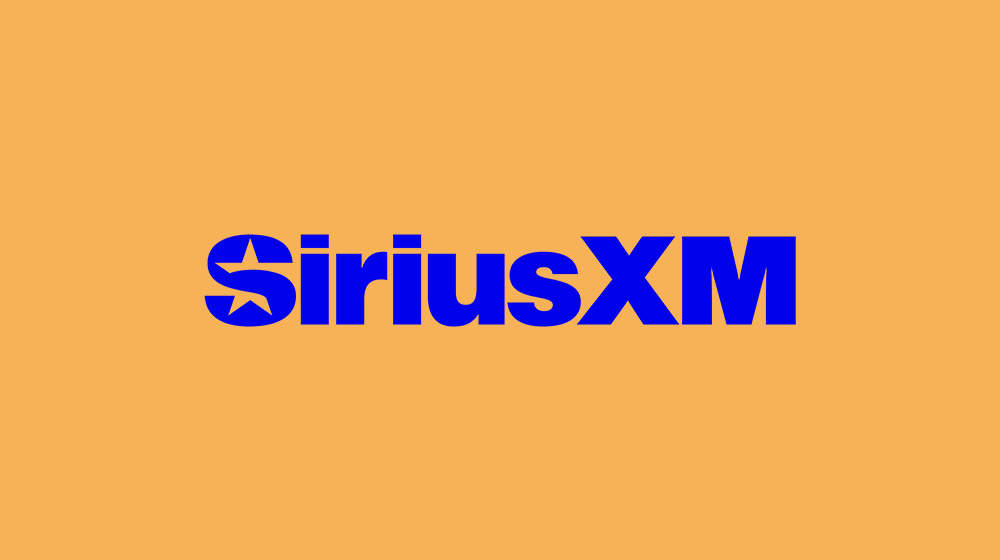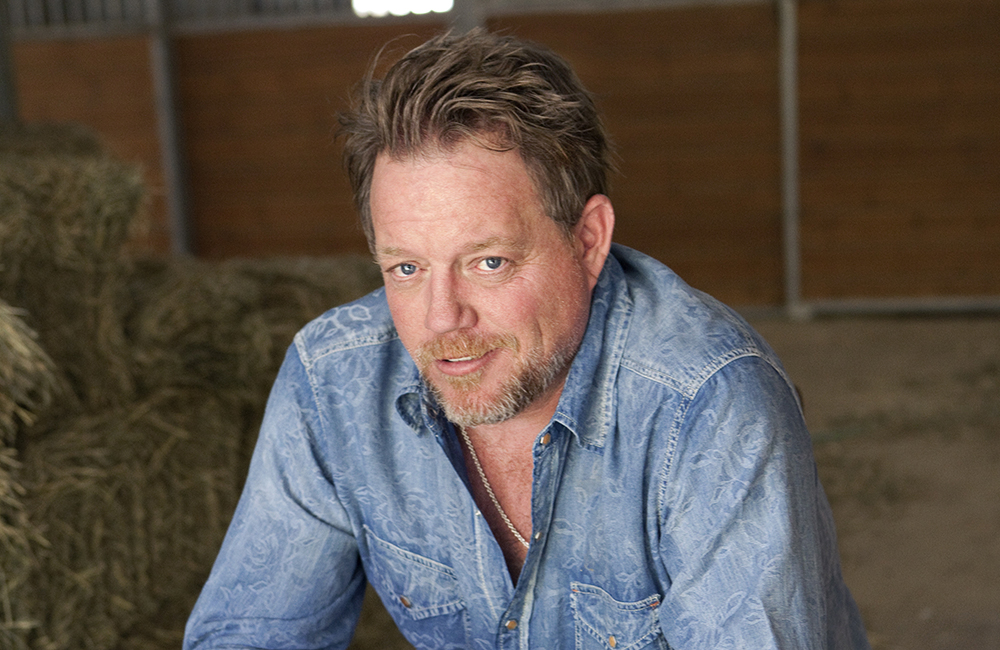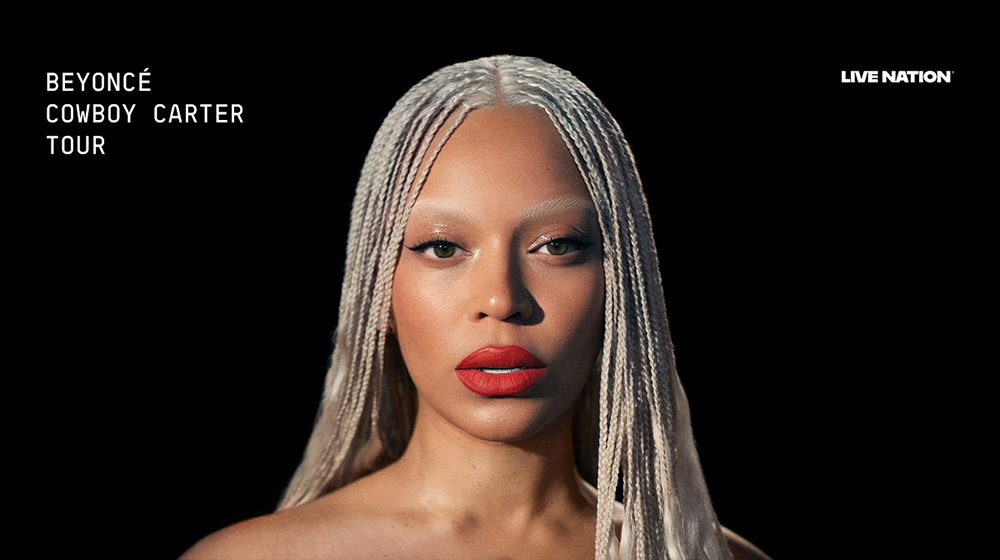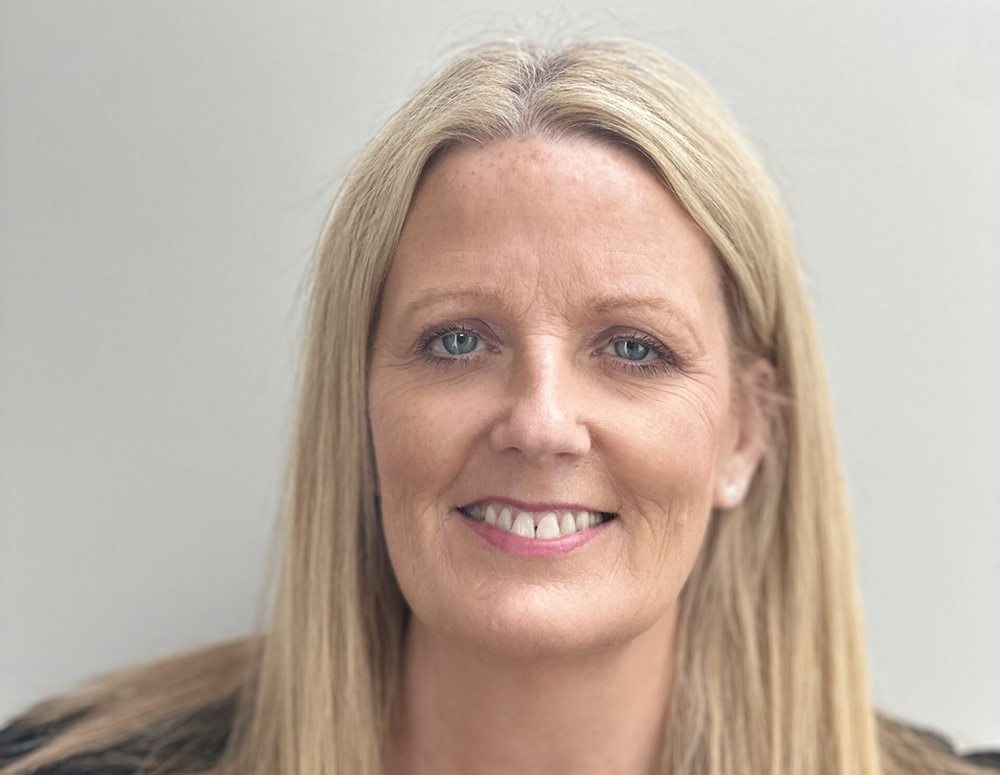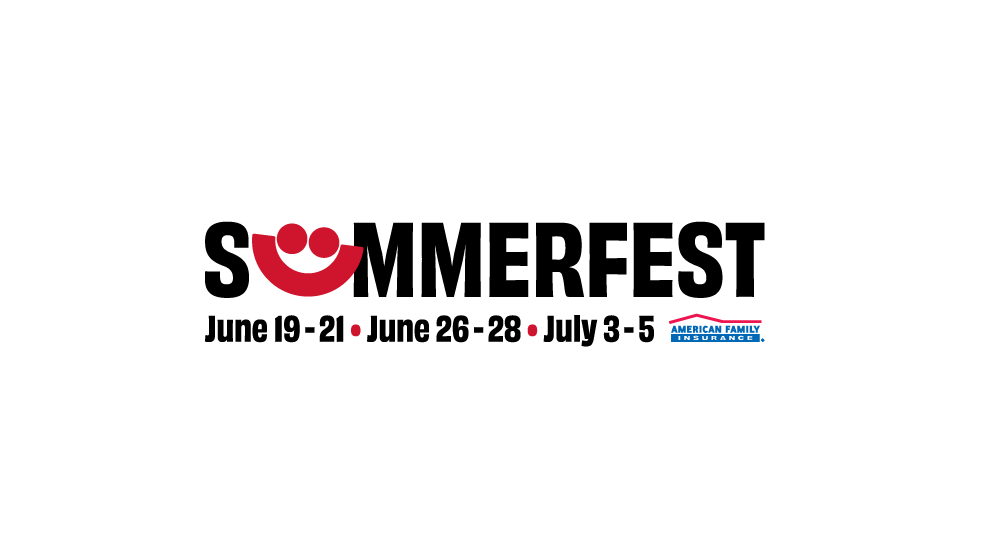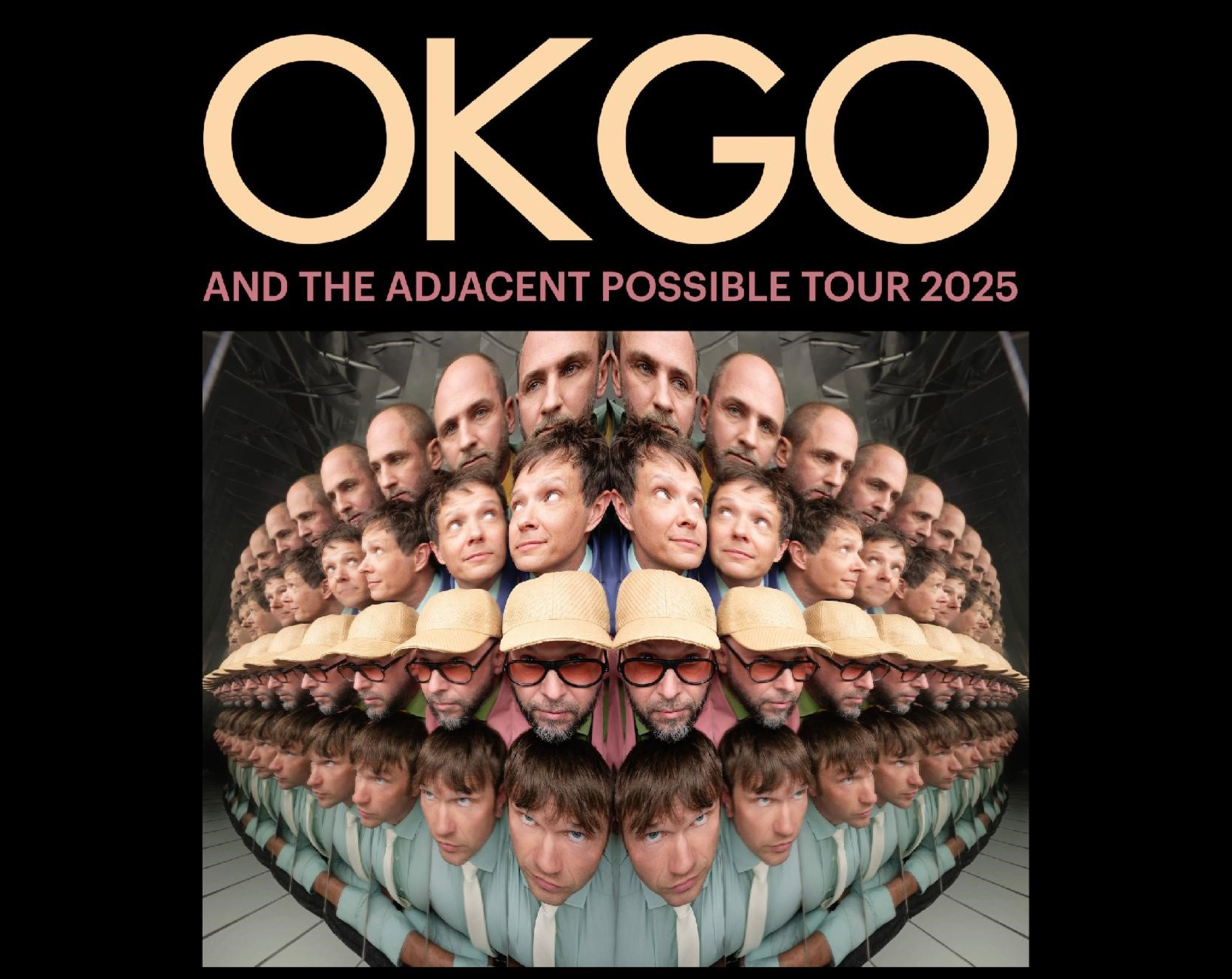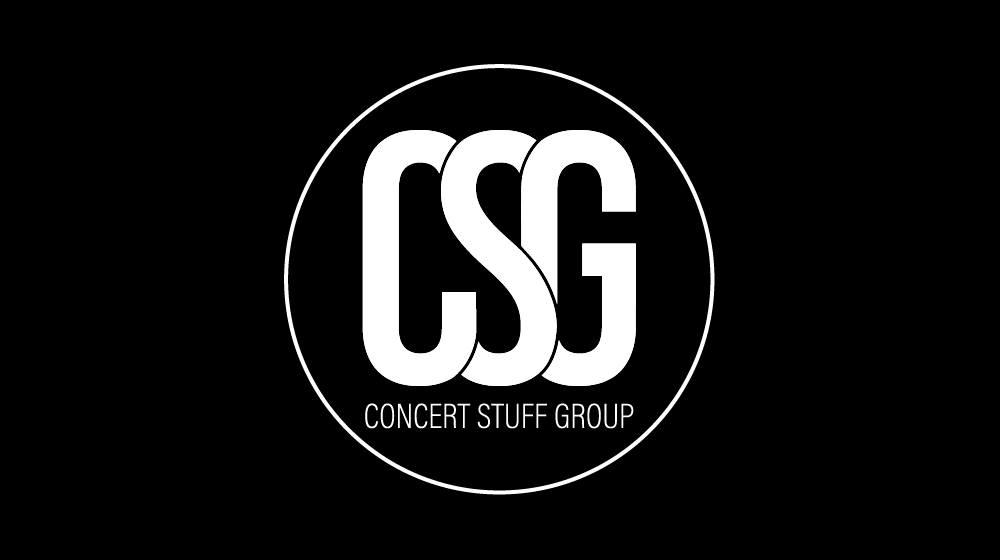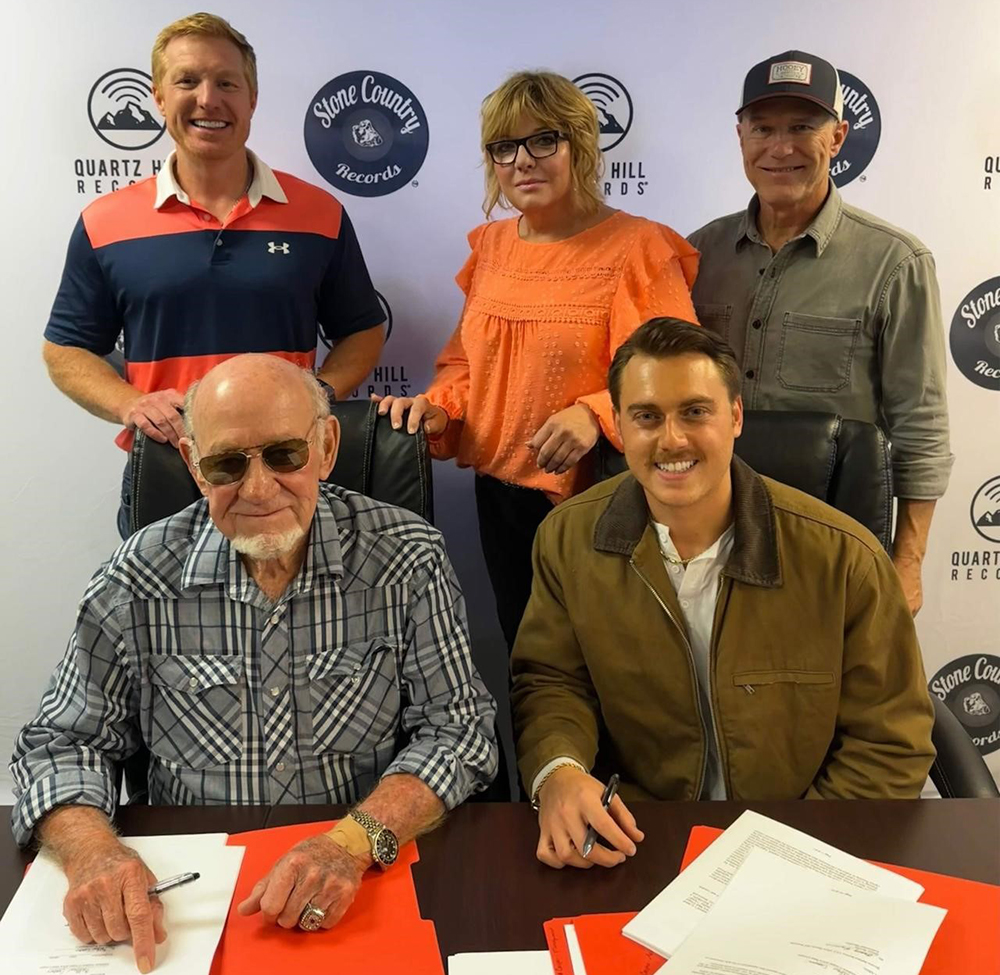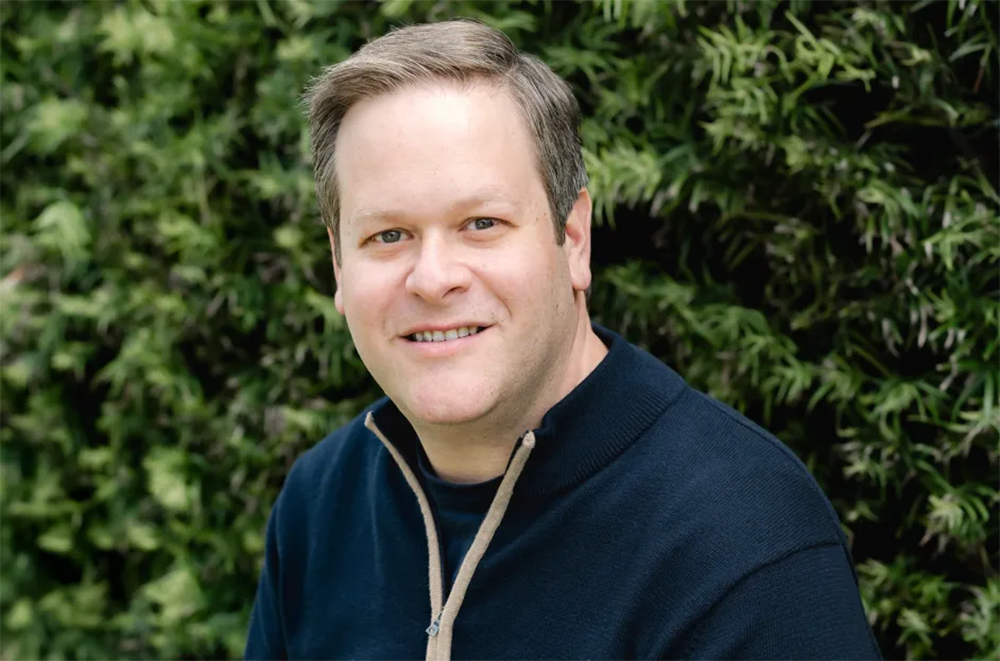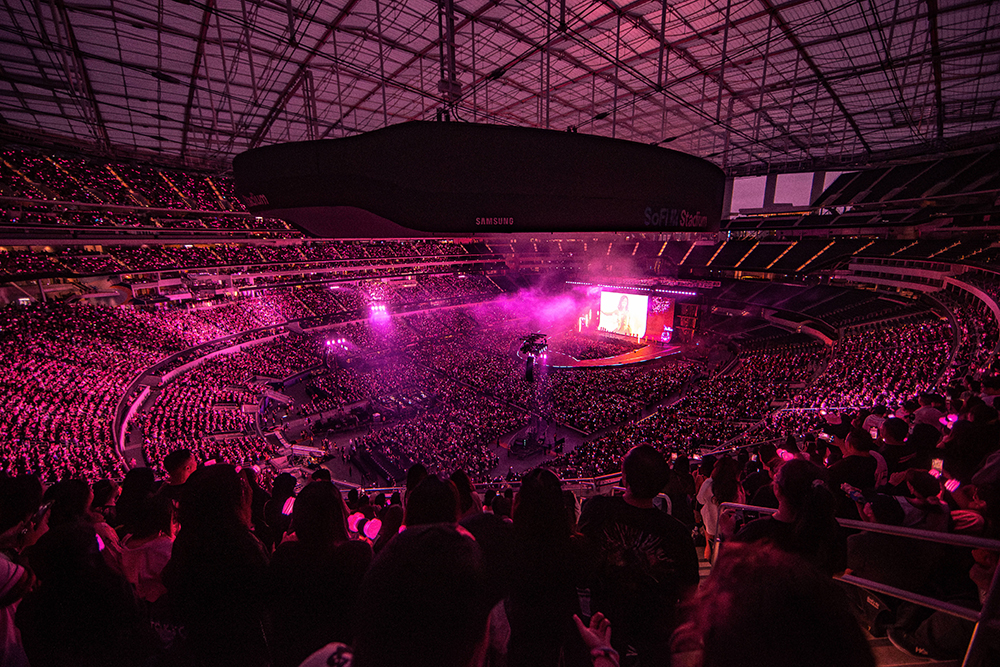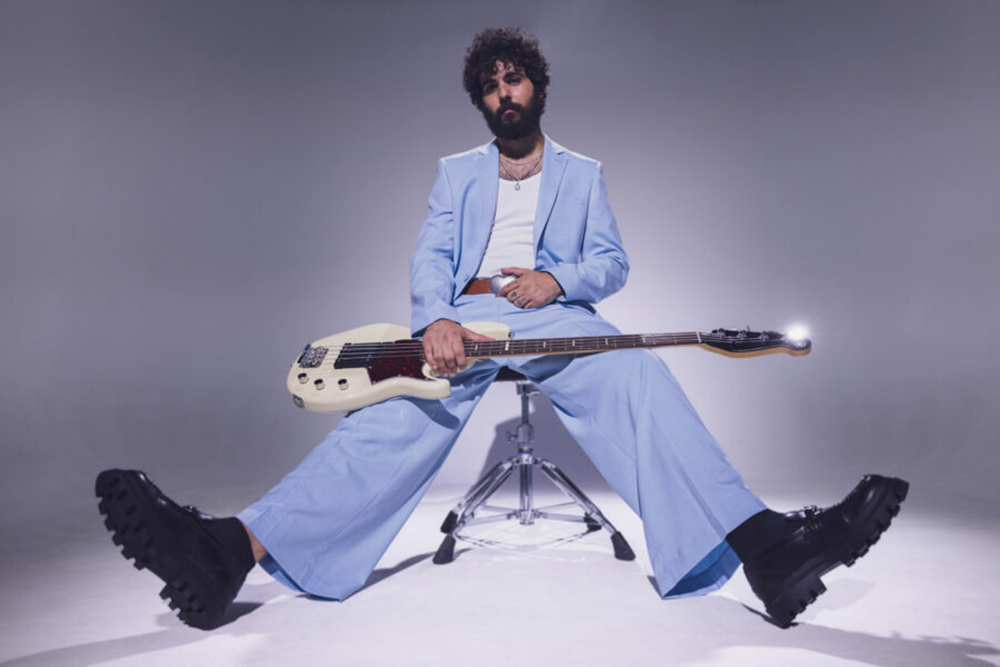This week In the Hot Seat with Larry LeBlanc: Andrew Dreskin, CEO, Flymachine.
In conversation live event veteran Andrew Dreskin modestly relates stories of a life full of spectacular business triumphs.
It’s a life that led him from promoting music events while a student at Tulane University in New Orleans to San Francisco where he masterminded breakthroughs of two towering American ticket giants, TicketWeb and Ticketfly.
As well, he piloted the Virgin Mobile FreeFest, which ran for 8 years in the Mid-Atlantic region.
Dreskin is a technology-based, live event-affiliated executive who understands that, while livestreaming was surging in the past two years with the COVID-19 pandemic, event marketing was about to change.
Blending in-person, and virtual experiences to create an IRL/virtual hybrid event, he deduced, was a way for bands, and venues to reach greater audiences, and explore miraculous new growth.
So Dreskin launched Flymachine.
First, he built an unparalleled executive team, then developed one of the most innovative platforms to ever be launched in the live event sphere, and, this is important, he raised $21 million to back his intuition.
Flymachine also includes as chief experience officer, Rick Farman from Superfly who also co-founded the Bonnaroo, and Outside Lands festivals; legendary tech and music whiz Matthew Davis from [namethemachine]; and also ATC Management.
Angel investors include Red Light Management founder Coran Capshaw; manager and promoter Bill Silva; Wasserman Music executives Marty Diamond, and Larry Webman; Ben Lovett of Mumford & Sons; Wired magazine co-founding editor John Battelle; Bay Area concert promoter Another Planet Entertainment; and LionTree Partners, a service provider and investment banking fund.
Finally, Dreskin and his Flymachine team built strategic partnerships with a handful of notable music venues in North America including The Bowery Ballroom in New York City; TV Eye in Queens; Bimbo’s 365 Club in San Francisco; The Casbah in San Diego; The Crocodile in Seattle; Marathon Music Works, and EXIT/IN in Nashville; The Neighborhood Theatre in Charlotte; The Signal in Chattanooga; The Truman in Kansas City; The Vogue Theatre in Vancouver; Higher Ground in South Burlington, Vermont; White Oak Music Hall in Houston; and the Moroccan Lounge, and Teragram Ballroom in Los Angeles.
Since the public launch of its platform in spring 2021, Flymachine has hosted “30 or 40” live music performances in which participants were able to virtually move through various spaces, utilize proximity-based video chat to see and speak to each other, and experience chance encounters, similar to in-venue experiences. Meanwhile, performers were able to utilize high-quality visual effects, receive feedback in real-time, and interact with fans.
Live streaming only really started to gain momentum with the COVID-19 pandemic as it quickly became recognized as an affordable way to scale live events without escalating production costs.
At first, coupled with Twitter, YouTube, Facebook, and Twitch reach-outs, live streaming of music acts was kind of fascinating because of providing a participatory experience for viewers.
As a result, live streaming is now faltering as it is apparent that streaming live music content has far more potential in offering rich social experiences where fans interact with one another or with strangers.
Did you have the same reaction I had to live streaming that has been available with COVID-19?
Yes, absolutely. It’s interesting, and I am glad that you shared that viewpoint. It has been both amazing and underwhelming, great yet missing the mark at the same time. I think that is what got me so excited about it. On the one hand, I was able to see what It could be. I was able to see it as sort of engaging, and what live events could be for an at-home audience. But it was missing several elements that make you feel connected to other people, and make you feel connected to the event. That give you that sense of excitement, and wonder like when you are going to a venue, or when you are at a venue or you are at an event. That stuff was missing. So we just saw an opportunity. The fact that it already was pretty cool, but there was a lot more innovation there to bring to bear.
I’m a fan of futurist Ray Kurzweil. His 1999 book “The Age of Spiritual Machines — When Computers Exceed Human Intelligence” was among the first of his books to augur the convergence of human life with technology. Essentially creating meetings and events through virtual reality.
As you know, Oculus offers virtual reality experiences in live music, and the American performance art company Blue Man Group was among the first to offer an event experience by taking over the environment of a theatre. I’ve always felt that in a club or theatre why aren’t we breaking down the fourth wall by blending event programs with virtual event options?
Yeah, look these are great examples. Blue Man Group is an interesting illustration, and then there’s the immersive dinner theatre, and some of those things that have been taking hold in some of the big cities. And, even stretching back to some of my TicketWeb days, we used to sell tickets for some of those types of immersive dinner theatre events, and they were super cool. But yes, I think that the virtual events can sort of be the extension to that.
Live events and interactive music experiences sit at the heart today of so many metaverse aspirations.
There’s Travis Scott, Marshmello, and Ariana Grande appearing in Fortnite, and League of Legends spinning up their own digital K-Pop group, Riot Games.
Only a few months after Travis Scott’s digital debut in Fortnite, Sony invested $250 million in Epic Games.
Next Warner Music Group joined a $520 million investment round into the Roblox Corporation, maker of the highly popular online global game and game creation platform Roblox that brings people together through play. Warner also put millions into Overwolf, which allows users to make video game extensions.
Last year Avatar-Concert Startup Wave’s $30 Million Round drew music manager Scooter Braun and ex-baseball player Alex Rodriguez among Investors who contend that there’s a market for virtual concerts in which fans see their favorite artists performing as digital avatars.
Flymachine is delivering hybrid IRL-virtual events. Not simply filming an IRL experience, and calling that a hybrid event, but designing experiences for both stay-at-home and event audiences while finding the sweet spot where the two worlds enhance one another.
Yes, that’s right. The same way you can have this immersive experience where you are not a bystander but you are an active participant like at, say with Blue Man Group or at an immersive dinner theatre, where you can have that type of experience now online. If you look at some of the worlds of the metaverse that exist, like Roblox and some of these types of things you can now have different immersive experiences where you are moving through multiple rooms and spaces.
(Metaverse, a term first coined in science fiction, is a combination of the prefix “meta”, meaning beyond, and “universe.” It refers to shared virtual worlds where land, buildings, avatars, and even names can be bought and sold, often using cryptocurrency. The term covers a wide variety of virtual realities, from workplace tools to games and community platforms. Many of the new platforms are powered by blockchain technology, using cryptocurrency and non-fungible tokens (NFTs), allowing a new kind of decentralized digital asset to be built, owned, and monetized.)
To what you just referred to, we believe that the future of live events will be a hybrid of in real life and virtual. Artists don’t always play to all the cities that people live in and sometimes people can’t make it down to the show. Even if you can go and see your favorite artist how often does that happen? Once every couple of years? That’s a long time to wait.
Todd Rundgren and his 10-piece band recently completed a 25-date “Clearly Human” virtual tour with each performance geo-fenced, localized, and tailored to a different city. In reality, each two-hour show was performed and televised from a venue in Chicago that Todd and his band had taken over for a month, building the equivalent of their own television studio.
Due to the internet-driven disruption in music for the past two decades, and now with the COVID-19 pandemic, labels, promoters, managers, and artists are more cognizant of many of technology’s newest opportunities.
In the past, their stance was, “Look, we put on concerts. That is what we understand. We put people in seats, and we sell them food and drink and a great music experience.
A concern over the years, from the labels and managers, is when does a group broadcast a live show in a touring cycle? The fear has been that posting too early cannibalizes tickets sales of upcoming dates.
I don’t think that’s true.
I think posting a broadcast of the very first show of the tour, and then even once or twice afterward, could enhance excitement around a tour. Tours are long, sets change, and the earlier posted events would sell the tour in advance. Plus, there’s the opportunity to reach an international audience of fans, and capture new fans.
I would say that the virtual event not only does not cannibalize an in real life show, (or tour) but it is actually a great advertisement for them.
That’s my point. As we know, event marketing drives the live music business. In-person events are especially powerful for driving artist value. As digital events increase, fans will seek increased human connection through face-to-face experiences. One way to grow in-person event programs is by blending them with virtual event options.
Yeah, exactly. Absolutely. I think that in certain instances, you will probably be able to transfer your tickets. If you had a rough day, and you aren’t going to be able to make it down to the show, you can watch it (the event) online. These things will start to look more like sporting events. I’m a Yankees fan, right? If the only way that I could see the Yankees was to go to Yankee Stadium, that would be bonkers. Also when I was living in New York, sometimes I would watch the Yankees on television or sometimes I would watch the Yankees on my iPad, and sometimes I would go to Yankee Stadium. That is what I think live events, as you said, are going to start to look like.
Live events are becoming just as digitally interconnected as other aspects of our lives, and virtual audiences are becoming an extension of in-person audiences even though virtual events will never replicate the magic of in-person connections. There will never be a replacement for the power of human performance. Hybrid events need to play to both sides, honoring the experiences people choose at the venue while fulfilling a greater at home global reach.
Yeah, yeah, yeah. Totally. I agree with all of that.
Cameras in the dressing room minutes before performances would be cool.
That’s a great illustration of where this technology will go. There are so many things that you can do. You can go backstage and spend time with the artist before and after the show. They can join people in a room. We are at the new frontier, and there’s just a lot in front of us.
This really translates into using chat functions and engaging in all of the aspects of communication that underpin successful human interactions.
These are still starter days for immersive social experiences on hybrid IRL/virtual being part of the future of live events. What will come with further social media integration, and as bandwidth, the number of channels, and signal reception quality being transformed, as is access to advanced, features: Pre-and-post show multimedia offerings, real-time data, and crowd visualizations? Also, there will be repackaging of content from videos, audio, blogs, posts that will be sent out to your in-person and virtual audiences at the same time.
So far, hybrid IRL and virtual are largely untapped. Still in their infancy.
I think that is right. Sometimes you do have Zoom fatigue, and sometimes you are just tired right? Meaning that you don’t want to go to the sporting event or you don’t want to go to concert or whatever. But yeah look, the reality is this just gives people optionality. You mentioned a moment ago that virtual events and live streaming are in no way intended to supplant live events. That is not what this is. These are intended to either augment live events or to be an alternative for live events if for whatever reason you can’t get to the venue, or if the tour is not coming through your area; or if you had a crappy day; or if you can’t find a baby sitter, whatever it is. This is never going to supplant live events. There’s a reason why live events are magic. What I used to say years ago when we were in the early years of event ticketing. I would say that “You can’t pirate a live event.” Around the time of Napster and when people were stealing music, it occurred to me that the reason why this is never going to happen with live events, and frankly, to event ticketing, was because you can’t pirate a live event. You just cannot replicate that feeling.
Being able to broadcast to huge numbers of people has long been a fear for sectors of the entertainment industry.
The early 20th-century English conductor Sir Thomas Beecham thought that if people could listen to concerts relayed in their own homes, they’d be reluctant to visit concert halls.
Theatre producers were concerned that theatrical broadcasts would become a substitute for theatergoing.
Michael Kaiser, president of the John F. Kennedy Centre in Washington in a 2013 blog argued that digital downloads and screenings were threatening American regional theatre. He asked whether the baby-boom generation could be, “the last to routinely attend live, fully professional performances,” and suggested that the allure of being able to broadcast to huge numbers could make organizations who are using digital technology risk-averse and lead to the collapse of regional theatre.
“Why will people go out to the theatre, particularly at a time of rising costs,” he asked, “when they can stay home and download or go to a local cinema?”
Most radio stations in North America in the late ‘40s and early ‘50s had in-house orchestras or small groups on staff. The sentiment was that playing a recorded performance on the air hurt the artist by overexposing them, and it jeopardized their live engagements if fans could hear them on the radio.
Yeah. I think what they used to say was that radio was going to kill the record business. Nobody was going to buy records anymore because they could hear the songs for free on the radio. It just turned out to be great advertising and a great marketing vehicle for the artists. I think that is what you are going to see here too. No one is going to watch an event at home on their couch, and then say, “I love that band. The show was great. They are coming to my local club, or they are coming to my local arena, and I’m not going to go because I have already watched them.” I just don’t see that being the case.
More so, I think that this is going to be a tool for discovery. You are going to have people around the globe experiencing music and new artists that they have never seen before. This is going to act as a promotional opportunity for those artists to extend their brand and their profile. And then when they (the artists) do come to town, I think that fans are going to get to the shows. Another thing I think that is going to be quite interesting is that we have gone out and done deals with some of the most iconic venues like the Bowery Ballroom in New York City and EXIT/IN in Nashville. A lot of great venues.
In my conversation with the venue owners, I shared a thought with them, and that is “Just think about there are people around the world, in Japan, South Africa, and Brazil, all of these places watching shows from your venue. When they show up in New York City or…
That is exactly where they are going to go.
I guarantee on their “to do” list is “Hey, I’m going to check out a show at the Bowery Ballroom. I have to check out a show at the EXIT/IN in Nashville.”
Andrew, it’s like when we were younger with word of mouth. If we were going to Boston, we were going to the Paradise Rock Club to see a show. If we were going to Amsterdam we were going to Paradiso which is housed in a converted former church building that dates from the 19th century.
To Paradiso or Melkweg.
Will Flymachine be doing things like deeply integrating social media? Bringing on Jason Feinberg as senior VP of marketing suggests that you will. He was previously senior VP at UMe, the catalog division of Universal Music Group where he oversaw social media, audience growth, product management, marketing technology, and advertising teams for the Beatles, U2, Guns N’ Roses, Bob Marley, Kiss, Elton John, and Iggy Pop.
(At Flymachine, Jason Feinberg will lead marketing across digital and product-based initiatives. His remit includes consumer and product marketing, partnerships, audience growth, advertising, branding, direct-to-consumer, and fan acquisition. Feinberg previously held marketing leadership roles at Pandora as head of artist marketing, as well as at Epitaph Records, and the Concord Music Group.)
Consumer marketing is fascinating, and Jason has deep experience. The label business used to be a B2B (business-to-business) endeavor. It was sort of marketing to record stores. But over the years with Spotify and things like that, labels have had to become highly versed in consumer marketing. What you are also sort of getting at is that now these promoters and artists are going to have the ability to market the live event, and they will have the ability to market the virtual event, and this is going to create more revenue for the entire ecosystem. So rather than just having the in-real-life ticket, and in-real-life merchandise as a revenue pool to share between artists, the venue and promoter, now you are going have the in-real-life ticket, and in-real-life merch, and you are also going to have virtual tickets, and virtual merch or in-real-life merch that is sold on-line. It just creates a bigger revenue opportunity for everyone.
Are some of the things I’ve mentioned like integrating social media so there’s advanced broadcast features, pre-and-post show multimedia offerings, real-time data, and crowd visualizations being utilized by Flymachine?
The short answer is yes. Flymachine, relative to the others, is a highly social endeavor. The social experience, the shared, communal experience, they stand at the foundation of what we have been doing from the jump. Did you watch a show yet?
Oh yeah. Portugal. The Man at The Crocodile in Seattle on Sept. 1st. New venue. New tour. New set. Portland rockers working out Fall tour jitters virtually on Flymachine, live from the new Crocodile in Seattle before it opened to the public at the former site of the Sailors’ Union of the Pacific lodge.
I was fully impressed with not only the band’s performance but the sound quality. I also felt that I was watching a personalized event.
That’s what Flymachine is trying for really, a personalized experience.
While virtual events will never replicate the magic of in-person connections, a truly audience-centric narrative will make IRLs so much richer.
Exactly. What we say is that you have the ability to choose your own adventure on Flymachine. So you’ve seen that the social experience is just foundational to what we do. The whole premise is that you want to experience these events with other people. Just because you are at home doesn’t mean that you don’t want to be with your friends, and have a shared experience.
Everything that we do is viewed through a social lens. It’s a highly social experience where you can watch it privately with your daughter or with your daughter and a bunch of your friends or you can watch it publicly, and meet people with shared interests. I can’t even tell you over the 30 or 40 shows that we have done so far how many serendipitous, just chance, encounters that I have had in some of these public rooms. Running into old friends, running into friends from high school, running into friends from the music business. It’s been a lot of fun.
What did you learn from doing the 30 or 40 show events? Obviously, there’s a learning curve.
Oh my gosh, we’ve learned a lot. We are getting a sense for the number of people who join and create rooms. We have done a lot with our UI (user interface) and navigation. We made a bunch of changes to make sure that it is as intuitive as it can be. We’ve learned a lot about the video, and audio technology, making sure that it is top-notch. The first events that we did were really just tests. Frankly, we are still in beta right now. I tell people that we are in the first inning of a 9 inning game.
Once mastered, hybrid IRL/virtual will be like a live event on speed.
Yeah, exactly. Venues and artists are already marketing these shows, and now they have another tool in their tool belt. Another arrow in the quiver. Choose your metaphor.
Flymachine already has an impressive list of independent promoter and venue clients signed. How did you pick the venues to license? Did you seek them or did they hear about Flymachine and come to you?
It’s a little bit of both. I think that the common theme though is that we have worked with many of these people before. One thing that we are definitely hearing from our venue community is they value being in business with a trusted partner. We have been a technology provider and a fiduciary in securing these folks money for many years in our prior incarnations. So I think that one of the things that we bring, and that promoters look for, is a trusted provider. That they know that it (investment) doesn’t come from some other industry and that we understand how the live event business works, and understand how the music business works. So we get a lot of inbound that way, and then we also try for the venues and the owners that we are most fond of. We really focused on iconic venues. We are just looking for the venues that have some cachet, and that the artists are going to want to perform a virtual event from, at that it’s a venue that audiences from around the globe will recognize.
Has Flymachine provided specific equipment to venues for programming, like sound and visual equipment, multiple HD video cameras or camcorders, an audio mixer, video encoder, lighting, and a WiFi router? Basically, bankrolling the shows.
It depends on what the deal looks like. Every deal is different. In some cases we provide hardware. In some cases, we don’t. In some cases, there’s repayment and some cases there’s not. It’s all a function of the deal. How much money we can earn in the process. The short answer is in some cases, yes, and in some cases no.
Of the venues you have agreements with most operate independently rather than being under Live Nation or AEG Presents control.
I think for the most part, yes. In some of those venues, AEG or Live Nation have some affiliation. In some cases, they might be the talent buyer. In some cases, they may be the promoter. In some cases, they might bring shows into those venues. We have a good relationship with both AEG and Live Nation. Frankly, I am fond of many people at both.
An executive dream team at Flymachine? Certainly one that is highly experienced with considerable contacts in entertainment and technology.
Working with ATC Management as a fourth founding partner gives Flymachine direct access to a sizeable talent stable that includes Nick Cave, PJ Harvey, Johnny Marr, the Lumineers, Cuco, and Santigold. ATC has 40 managers today and strong a footprint in Europe too with offices in London and Copenhagen.
A huge agency business in Europe. They just built a great business. You know good things happen to good people.
As I said, there’s my history with TicketWeb, and Ticketfly, and (co-founder) Rick Farman’s history with Superfly, and he was, of course, the creator of Bonnaroo, and one of the creators of Outside Land; and there’s ATC, one of the best artist managers in the game; and finally there’s my buddy Matt Davis (the Grammy-nominated music technology trailblazer) from [namethemachine].
With that kind of founding crew, we feel that we’ve got the bases covered. We’ve got event ticketing and commerce. We’ve got large-scale events. We’ve got interactive media, and we have the artist side. It certainly has been helpful.
Matt, in fact, is a music technology trailblazer. In addition to playing electronics for the Los Angeles Philharmonic, he has programmed and run shows for Drake, Bassnectar, Banks, Frank Ocean, and the Glitch Mob. He’s designed and integrated AV systems for Disney Imagineering, Intel, AWS, and others. [namethemachine] has a reputation as a cutting-edge boutique software and media development company focused on emerging tech and transmedia solutions for live shows, performance, and interactive media.
Matt is one of the few legends in both technology and music.
You know he really is. He’s a neat guy with a tremendous vision. It is telling when some of the biggest pop stars and the biggest hip-hop stars in the world choose Matt to bring their vision to life from a video perspective, and a technology perspective on tour.
I take it the first person you went to after having the inspiration for Flymachine was Rick Farman. You worked together a lot over time with him at Superfly, as well as at Bonnaroo and Outside Lands.
Yeah, totally. It is interesting how this came about. I’ve known Rick Farman for 25 years. Rick and Superfly were early clients of mine at TicketWeb. In fact, one of my first clients. I remember when those guys were just a tiny little promoter just doing club shows, and doing some nighttime Jazzfest shows. They really burst onto the scene with Bonnaroo (in 2002). Rick and I have remained friendly. In fact, he ended up moving a mile from me in Berkeley.
How did Flymachine then come about?
Rick and I were talking in the early days of the pandemic, We were just intrigued by virtual events, and livestreaming. We started to brainstorm and Rick knew Matt Davis. They went to the same sleepaway camp at different times. So they knew each other through that. It seemed like a bit of a full circle because ATC manages Matt’s career. And the ATC guys were instrumental in some of my early endeavors in the festival space. I remember being just incredibly impressed with how open and how accepting they were of a recent ticketing graduate who had a vision to do a large-scale music festival. They were very helpful in helping me realize my vision there.
What live events were you involved in as a promoter?
The first one was the Field Day Music Festival in 2003 (at Giants Stadium in East Rutherford, New Jersey on June 7, 2003 with Radiohead and Beastie Boys headlining), and then I was the co-founder of the Virgin Mobile FreeFest, which ran for 8 years in the Mid-Atlantic region.
Flymachine raised $21 million in new funding.
Yes, to date we have raised $21 million, and that was a combination of seed financing, Series A, and venture debt. Frankly, that was some of the fun part of the whole thing. I count myself lucky. I guess this is what happens when you raise 10 plus rounds of institutional venture capital (with VC and investment firms) over the years. I was on a Zoom earlier today with the CEO of one of my competitors. I’m not going to name names. But this individual was telling me that this was the first time that they had ever raised venture capital financing. And, “Boy. it was really a humbling process.” And I was thinking, “Oh man. welcome to the club.”
(American former professional baseball shortstop, businessman, and baseball executive) Derek Jeter once said, “Baseball is the only business where you fail 70% of the time, and you end up in the Hall of Fame.” Well, it kind of reminds me of the venture capital fundraising business. This is a business where you fail 90% of the time.
The financing for Flymachine was led by Greycroft Partners and SignalFire, with additional participation from Primary Venture, Contour Venture Partners, Red Sea Ventures, and Silicon Valley Bank.
Financiers, both credit and equity providers, and even the credit providers stayed away from music business for many years after the stock market Dot.com downturn in the late ‘90s.
Oh yeah. I tell people, “Don’t blame me for that.” We have made our investors a lot of money on the periphery of the music business. But one of the best parts of this whole thing is when you look at the interpersonal stuff I shared with you, my history with Superfly and ATC, but if you look on the investor side, the first investors were some of my most valued investors and trusted counselors from Ticketfly, right? Like Primary Venture, and Contour Venture Partners, and then with Ian Sigalow (co-founder and partner at Greycroft). I’ve known Ian for many years. He was instrumental in getting Ticketfly off the ground. He introduced me to some of our first angel investors. So this is a little bit of coming full circle with Greycroft and LionTree Partners; and it’s been fun to add SignalFire and Red Sea Ventures. We really like those guys.
Rounding out the group great founders, great institutional investors, and then we’ve got (music industry) “angels” that we have known for many years. It’s great to be able to have Ben Lovett from Mumford, and Coran (Capshaw) and Marty (Diamond), and Larry (Webman) on the team . I used to run into Marty at the park in Manhattan. Our kids would play on the same swings in Lower Manhattan.
Did you have to go to Hawaii to meet up with Bill Silva?
I did not but I would have, gladly.
He’s one of my favorite people in music.
Ah, Bill Silva is the salt of the earth. They don’t make them as good as him anymore.
Each of these “angels” has worked all sides of live music including being promoters, and managers.
Absolutely. These are all people who do all kinds of different stuff. Also, in tech investing, music investing, Flymachine wasn’t these guys’ first investment. Bill Silva is such a treat. I would do business with Bill Silva whenever I can because he is so smart and so insightful. One of the things that is striking about Bill is that he’s eminently fair. I’ve been in some stuff with Bill that was good, and I have been in stuff with Bill that was less good, and either of ours faults. Just an absolute gentleman. It’s been a treat to be back in business with a bunch of these folks.
Given TicketWeb and Ticketfly, your investors know you will get maximum value for Flymachine.
(Laughing) I think what you are trying to say Larry is, and I hear your point, is that the thing is there’s decent leadership here. Certainly, some of these folks said, “Hey, with Andrew and Rick and Matt, and ATC; and also having folks from their prior lives involved in this business, this is a management team that we can bet on, and believe in. This is a team that has done it before. This is a team that can see around corners, It knows what to look for in building and running technology businesses and building and running entertainment businesses.”
So yeah, I think that (relational experience) certainly de-risks it for them.
(In a move to diversify its ticket offerings, Ticketmaster in 2000 acquired TicketWeb in a stock transaction valued at $35.2 million.
Pandora acquired Ticketfly in a $335 million deal in 2015. Two years later, Pandora sold Ticketfly to its largest competitor, Eventbrite for $200 million. At the time of the 2015 acquisition, many in the live entertainment industry thought Pandora paid too much for Ticketfly, and the 38% drop in value in less than two years seems to affirm those fears.)
I tell people that my list of references is everybody I’ve ever worked with. Call anyone, and everyone.
Where are you from originally?
I am originally from New Jersey. Born and raised in North Jersey in Livingston. My formative show-going days were in the ‘80s. The early shows I went to when I was a kid were at Madison Square Garden, and the Brendan Byrne Arena (later to become Meadowlands Arena).
Metropolitan Talent’s John Scher, and Ron Delsener, then with Delsener/Slater Enterprises, were for many years at the forefront of the concert scene in the New York/New Jersey area.
John Scher and Ron Delsener, when I was growing up, those guys sort of traded off.
One of greatest competitions in American live music.
It was amazing. Every ad I saw on the inside cover of the New York Times’ Arts section for one year was for Delsener/Slater, and another year it was Metropolitan. They would just trade back and forth. One of the first shows that I went to was probably a Metropolitan show for Ozzy’s (Osbourne) “Diary of a Madman” tour in (May 23rd) 1982 at the Brendan Byrne Arena. It was right after (guitarist) Randy Rhoads died (March 19th, 1982 at age 25).
You went to college?
I did. I went to Tulane University in New Orleans. My major was history. Over the years, I’ve credited New Orleans with kind of making me who I am as an entertainment executive. I landed in New Orleans in 1986 as kind of a wide-eyed music fan. New Orleans really fostered, and really grew my love of music. I was an avid music junkie, and in New Orleans I learned so much about cool music, jazz and blues, and early American music. I fell in love with the local bands, and the bar bands that were playing cover tunes, stuff that I had never heard before.
In taking history as a major at Tulane were you planning on being a teacher?
No, no. My vision was just to get some sort of broad liberal arts degree, and then specialize from there. I always loved history. I toyed with the idea of graduate school, but what changed the course of my life forever, was that May 10th of 1990, myself and a few friends formed a concert promotion company called the Krewe of SNAFU. We started promoting concerts with the Radiators. We did our first show in May of 1990 at Tipitina’s. We had a fantastic evening, and we also made money on the show. That was when the light bulb went off for me. I thought, “Man, I can marry what I love and my job.” That was it. From there, I was just singularly focused on entering the music business.
(After parting company with Epic Records, the Radiators returned to their own Croaker label in 1992 with their first live album in a decade, “Snafu 10-31-’91.” The album was recorded at a Halloween concert on Oct. 31st, 1991 hosted by the Krewe of SNAFU. This self-published album was not distributed widely, and copies are rare.)
I have some great stories, man. Like every college graduate around at that time, I started preparing resumés. I wrote up a resumé, and a cover letter, and sent it to all of the record labels. I sent it to Metropolitan, and Bill Graham Presents because I was moving to the San Francisco Bay Area ultimately.
I didn’t get hired by any of them, but I was very fortunate to meet Matthew “King” Kaufman, the man behind the Modern Lovers, and The Greg Kihn Band.
(Matthew “King” Kaufman, a law school graduate, was co-manager of Earth Quake signed to A&M Records. After experiencing frustration with A&M, and winning some compensation for the unauthorized use of Earth Quake’s music in the 1972 movie “The Getaway,” he set up the label Home of the Hits (later renamed Beserkley Records) in 1973. Then Kaufman produced virtually all of Beserkley’s output throughout its existence including the Greg Kihn Band, Jonathan Richman, and the Rubinoos.)
Matthew became sort of a mentor, and he introduced me to the folks at California Concerts. Remember John Nady of Nady Systems (the professional and consumer audio product manufacturer)? Or Bobby Corona who used to operate the Keystones (overseeing various nightclubs, and bands it managed). California Concerts was a competitor to Bill Graham Presents, but when you say competitor to Bill Graham Presents, that’s like the first place team, and the last place team, and there’s no one else in the middle.
Even after Bill Graham died in 1991 in a helicopter crash, Bill Graham Presents successfully operated until purchased by Robert Sillerman’s SFX Broadcasting in 1997 for a reported $65 million.
I consider myself so fortunate to be living in the Bay Area in the early ‘90s and be able to go to the Bill Graham Presents shows. I remember when they reopened The Fillmore and had the greeter, and the apples. Their shows were just better than all of the other shows. What a lot of people don’t remember about BGP is that they also used to do these private, secret gigs all of the time. It was almost like they wanted to do it for themselves. They would have Neil Young or Pearl Jam, or Tom Petty play, in essence, at a private party. Those were fantastic.
You sent a resumé, and cover letter to Steve Welkom, then senior VP of administration and business development at Bill Graham Presents.
I sent him a resumé, and I never heard back Then Steve was part of the founding group of Another Planet Entertainment in 2003 with (CEO) Greg Perloff, and (his partner) Sherry Wasserman. I became friendly with those guys over the years. And I said to them, “I applied for a job at Bill Graham Presents in 1992. I didn’t get the gig. You know, I think my file copy is downstairs.”
And they still had the letter and resumé?
Sure enough, I fished it out. It was addressed to Steve Welkom, and it’s full of crappy grammar, typos, my cover letter, and my resumé. So we got a good chuckle out of that. Steve said, “We all have our blind spots. You, and some other folks we know, have gone on to have a lot of success in the business. We should have hired you.”
The feeling we get at the venue as the lights go down at a venue, and the band is about to hit the stage. is there any one of us that doesn’t get a thrill from that? That it reinforces why we do what we do.
Oh, I know. It’s so true. It’s a great way to make a living. I just consider myself lucky that I have been able to stay on the periphery of the music business, and the live events business, and also enter the technology business. It’s a great place to be.
Larry LeBlanc is widely recognized as one of the leading music industry journalists in the world. Before joining CelebrityAccess in 2008 as senior editor, he was the Canadian bureau chief of Billboard from 1991-2007 and Canadian editor of Record World from 1970-80. He was also a co-founder of the late Canadian music trade, The Record.
He has been quoted on music industry issues in hundreds of publications including Time, Forbes, and the London Times. He is a co-author of the book “Music From Far And Wide,” and a Lifetime Member of the Songwriters Hall of Fame.
He is the recipient of the 2013 Walt Grealis Special Achievement Award, recognizing individuals who have made an impact on the Canadian music industry.

